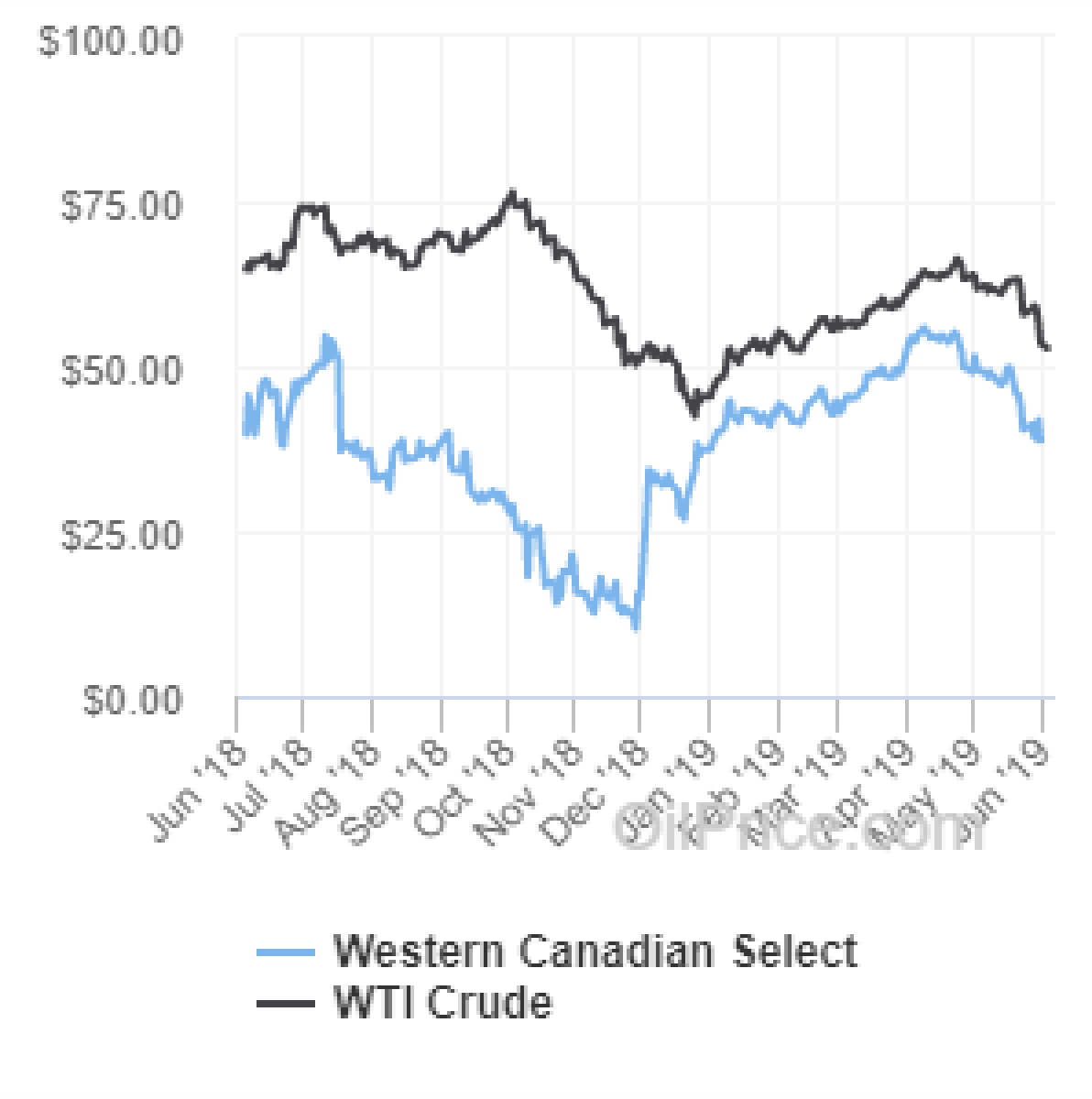
Wildfires in Canada are sending Canadian oil prices
higher as a second oil producer is forced to shut-in production, with
Cenovus Energy joining Canadian Natural Resources in halting operations
due to safety concerns, according to World Oil.
Over
the past year, Canada’s oil industry has suffered under the weight of
its deeply discounted benchmark crude oil, Western Canadian Select. The
painful discount, worsened by Canada’s provincial bickering over oil
flows and pipeline projects, pressured oil-rich Alberta last year
curtail oil production in an effort to shore up the discount. It worked.
In October 2018, the WCS discount was over $60.
That discount fell to just $15 last week, and is now looking to shrink even further thanks to the wildfire.
The
wildfires bring back painful memories of wildfires ripping through
Alberta in 2016, crippling multiple producers and shutting in hundreds
of thousands of barrels of production. The total estimated cost of those
fires were $1 billion. The wildfire damage was so far reaching, that it affected global oil prices as well.
The
latest wildfire has so far claimed just the two producers. The first of
which is Canadian Natural Resources LTD (NYSE: CNQ), which has seen a
drop in stock price of 1.44% to trade at $26.60. Cenovus Energy Inc.
(NYSE: CVE) was trading down 1.71% at $8.06.
Canadian Natural
Resources have stopped 65,000 barrels daily of heavy crude oil—a
resource that at the moment is already constrained as Venezuela’s crude
oil production—which is of the heavy variety—has dropped to new lows.
Iran’s oil too—also heavy—is also being restricted.
US Gulf
refineries are configured to process his heavy crude oil, which is
becoming increasingly difficult (or increasingly expensive) to find, and
driving season is now underway. Most refineries ramp up production for
driving season, but the global shortage of heavy crude oil—made worse by
the wildfires—will surely cut into refinery margins.
By Julianne Geiger for Oilprice.com

No comments:
Post a Comment